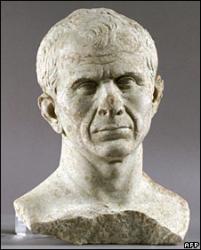  |
 Jul 25 2008, 11:43 AM Jul 25 2008, 11:43 AM
Post
#1
|
|
 Spends WAY too much time at CBTL       Group: Admin Posts: 16,425 Joined: 8-December 06 From: Michigan City, IN Member No.: 2 |
http://www.thepaper24-7.com/main.asp?Secti...ArticleID=16772
QUOTE Just who was Isaac Elston? By The Montgomery County Historical Society For The Paper Isaac Elston is a name familiar to many in Crawfordsville. His name is also familiar to some residents of Michigan City, Lafayette and Kankakee, Ill. But, who was this man and how is he connected with these cities? Isaac Compton Elston was born in 1791 in New Jersey. By 1820, the U.S. Census listed him as living in Vincennes. He then moved to Terre Haute, before settling in Crawfordsville in 1824. Elston was a merchant, but his fortune really began in land speculation. In 1826, Samuel Sargent, who owned the future site of Lafayette, engaged Elston, John Wilson, and Jonathan Powers to help promote the town on the Wabash. Settlement soon boomed, and Elston realized a tidy profit. In 1832, Elston purchased a large tract of land on Lake Michigan and platted Michigan City. He rapidly sold the town plots and soon reaped $50,000 in profit, which was an incredible amount at that time. Years later, Elston managed to acquire 3,500 acres in Illinois from Chief Bourbonnais. From this land, he platted the future city of Kankakee, and made $75,000 on the transaction. Elston had done incredibly well in land speculations, but with the region pretty well settled by the 1850s he turned his attention to banking. He established the Elston Bank in the early 1850s. By 1865, the Elston Bank had more than $26,000 in capital and more than $58,000 available in deposits. The 1860 Census, recorded that Elston owned more than $200,000 in real estate, and had more than $70,000 in personal property. In comparison, the same page of the census listed a teamster with $400 in real estate and $500 in personal property, a lawyer had $35,000 in real estate and $4,000 in personal property, and a farmer had $4,000 in real estate and $500 in personal property. Isaac Elston died in 1867, but his fortune continued to be administered in the community through his children, which included Mrs. Henry S. Lane and Mrs. Lew Wallace. His son, Isaac Elston, Jr., known as Col. Elston, continued managing the Elston Bank until his death in 1926, at which point his son, Isaac C. Elston III, continued the family enterprise for a number of years more. |
 Jul 25 2008, 01:59 PM Jul 25 2008, 01:59 PM
Post
#2
|
|
 Advanced Member     Group: Members Posts: 240 Joined: 3-August 07 Member No.: 505 |
I see one of his daughters married an even bigger Indiana Legend, Lew Wallace: QUOTE BIOGRAPHiCAL SKETCH Lewis (Lew) Wallace (1827–1905) was born to David Wallace, an Indiana Governor, and Esther French (Test) Wallace in Brookville, Indiana. Wallace was a lieutenant in the 1st Indiana infantry during the Mexican War, 1846–47. In 1848 Wallace edited a Free Soil Party paper to oppose the election of Zachary Taylor for president because he believed Taylor treated Indiana regiments badly during the Mexican War. After the election, Wallace became affiliated with the Democratic Party. Wallace was admitted to the bar in 1849 and soon began practicing in Indianapolis. A short time later, he moved to Covington, Fountain County, where he was elected prosecuting attorney in 1850 and 1852. Wallace moved to Crawfordsville in 1853 and was elected to the Indiana State Senate in 1856 as a member of the Democratic Party. In 1861, Governor Oliver P. Morton appointed Wallace Indiana adjutant general. For his recruitment services, Wallace was commissioned a colonel in the 11th Indiana Regiment and distinguished himself at the battle of Romney. He was soon promoted to general and fought at Fort Donelson and Shiloh, 1862. He was also in charge of the defense of Cincinnati, 1862–63, and was credited with saving the city from falling into Confederate hands. In 1864 he commanded a Union force of 5,800 at the Battle of Monocacy that held off an army of 28,000 Confederates and was credited with preventing the capture of Washington, D.C. Wallace was a member of the court-martial which tried the conspirators in the Lincoln assassination, 1865, and he was president of the commission that tried and convicted Henry Wirz, commander of Andersonville Prison, Georgia, 1865. Wallace was also involved in acquiring arms and men for Mexican rebels fighting the French, 1865–67. In 1867, he returned to Crawfordsville and was a Republican Party candidate for Congress in 1870. Wallace was named to the committee to oversee counting of disputed ballots in Florida, Louisiana, and South Carolina after the 1876 presidential election. From 1878–81 Wallace served as governor of New Mexico Territory. He was then named U.S. Minister to Turkey, a position he held from 1881–85. While in Turkey, Wallace won the confidence of the Sultan to an unusual extent. Wallace was probably best known as an author. Among his works were: The Fair God (1873); Ben-Hur (1880); The Life of Benjamin Harrison (1888); The Boyhood of Christ (1888), and The Prince of India (1893). Wallace was married to Susan Elston in 1852. She was the daughter of Col. Isaac C. and Maria A. Elston. Mrs. Wallace was a frequent contributor to newspapers and periodicals. The Dictionary of American Biography described Wallace as: "...simple in taste and democratic in ideals. For politics he had no aptitude; the law he did not like; the military life challenged his adventurous spirit but could not hold him after his country had no special use for his services; art, music, and literature were his most vital and permanent interests." Sources: Dictionary of American Biography, vol. 10, New York: Scribner's, c1964 pages 375–376. Reference Room Collection, E176 .D563. Pumroy and Brockman, A Guide to Manuscript Collections of the Indiana Historical Society and Indiana State Library, Indianapolis: Indiana Historical Society, 1986. pages 193–194. General Collection, Z1281 .P85 1986.  "The country needs and, unless I mistake its temper, the country demands bold, persistent experimentation. It is common sense to take a method and try it: If it fails, admit it frankly and try another. But above all, try something."
- Franklin Delano Roosevelt, Oglethorpe University Commencement Address (22 May 1932) |
 Jul 25 2008, 02:10 PM Jul 25 2008, 02:10 PM
Post
#3
|
|
 Advanced Member     Group: Members Posts: 240 Joined: 3-August 07 Member No.: 505 |
Actually, the other daughter married pretty well too:
QUOTE Henry Smith Lane (February 24, 1811 – June 18, 1881) was a United States Representative, Senator, and Governor of Indiana; he was the shortest-serving Governor of Indiana, holding that office for two days. He was known for his opposition to slavery. Originally a Whig, he became a Republican. Biography Henry Smith Lane was born near Sharpsburg, Kentucky on February 24, 1811. He received a classical education from private tutors and studied law; he was admitted to the bar in Mount Sterling, Kentucky in 1832. He moved to Crawfordsville, Indiana in 1835 and was a lawyer and banker there. Active in Whig politics, he was a member of the Indiana Senate in 1837, a member of the Indiana House of Representatives in 1838-1839, and was elected to the U.S. House of Representatives to fill the vacancy caused by the resignation of Tilghman A. Howard, serving from 1840 to 1843. Lane served in the Mexican-American War at the head of a company he had raised, and rose to the rank of lieutenant colonel of the First Regiment Indiana Infantry. He abandoned the profession of law and engaged in the banking business at Crawfordsville in 1854. At the Republican National Convention of 1856 he presided, and gained national recognition for his oratory; in 1860 he was influential in helping Abraham Lincoln win the presidential nomination. He headed his party's ticket in Indiana, and was elected Governor; he was inaugurated January 14, 1861. However, he served just two days, and resigned to accept a seat in the U.S. Senate to honor an agreement with running mate Oliver Hazard Perry Morton, who then became governor. Elected by the Republican-controlled Indiana Legislature, the Democratic-dominated U.S. Senate refused to seat him. However, he served from March 4, 1861, to March 3, 1867, and was a supporter of President Lincoln's policies during the Civil War. While in the Senate he was chairman of the Committee on Engrossed Bills (Thirty-seventh through Thirty-ninth Congresses) and a member of the Committee on Pensions (Thirty-ninth Congress). He served as special Indian commissioner from 1869 to 1871, and was commissioner for improvement of the Mississippi River. Lane died in Crawfordsville and is buried there in Oak Hill Cemetery. From Wikipedia: http://en.wikipedia.org/wiki/Henry_Smith_Lane Also, from a Montgomery County Historical Society Website QUOTE In 1845 Henry S. Lane built his home in the very center of the former Elston Grove. He represented Montgomery County as a state congressman, U.S. congressman, governor and senator. Lane was the chairman of the first National Republican Convention in 1856 and in 1860 his influence helped secure for Abraham Lincoln his party's nomination for President of the United States. Lane lived continuously at the home in close proximity to his brother-in-law, Lew Wallace, until he died in 1881. Lane's wife, Joanna Elston Lane, continued living in the home until she died in 1914. Seems like there's more than one Elston Grove in this state of ours.  "The country needs and, unless I mistake its temper, the country demands bold, persistent experimentation. It is common sense to take a method and try it: If it fails, admit it frankly and try another. But above all, try something."
- Franklin Delano Roosevelt, Oglethorpe University Commencement Address (22 May 1932) |
 Jul 25 2008, 02:16 PM Jul 25 2008, 02:16 PM
Post
#4
|
|
 Spends WAY too much time at CBTL       Group: Members Posts: 3,237 Joined: 8-December 06 From: MC Member No.: 3 |
I never heard of Elston Grove in Michigan City until the latter days of the Brillson epoch. Was this name of recent coinage or was it actually used by anyone before then?
 The difference between genius and stupidity is that there are limits to genius. Albert Einstein
|
 Jul 26 2008, 08:57 AM Jul 26 2008, 08:57 AM
Post
#5
|
|
|
Advanced Member     Group: Members Posts: 188 Joined: 10-April 08 Member No.: 783 |
Found the term "Elston Grove" mentioned here: http://mcmainstreet.com/id24.html
Was in reference to the oldest home, the Feallock House (built in 1866), in the Elston Grove Historic District. Said home was converted to the "The Historic 1866 Feallock House Bed and Breakfast" Perhaps the Elston Grove District was founded that long ago, as it more or less fits Isaac C. Elstons' timeframe of land purchases, albeit a couple of dozen years later. To quote from an article: The 19th century town of Michigan City emerged as a plan before it ever became a settlement. The plan arose from the ambition to create a harbor on Lake Michigan, and a road to transport supplies to homesteaders in Indianapolis and central Indiana. In 1830, just 14 years after Indiana became a state, the land for Michigan City was purchased, sight unseen, by Isaac C. Elston, a real estate speculator who had made a small fortune in Crawfordsville. He paid about $200 total for 160 acres of land including the future harbor at the mouth of Trail Creek. The town was named after the road leading up to Lake Michigan." Whether Elston Grove be that old or not, it is indeed an interesting piece of Michigan City History that (IMHOP) is not well known. |
  |
1 User(s) are reading this topic (1 Guests and 0 Anonymous Users)
0 Members:
| Lo-Fi Version | Time is now: 25th April 2024 - 11:24 PM |
Skin Designed By: neo at www.neonetweb.com
Invision Power Board
v2.1.7 © 2024 IPS, Inc.









